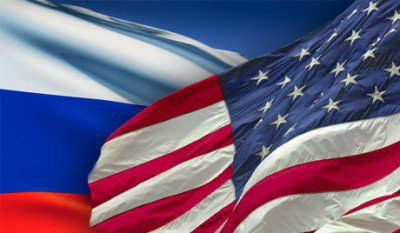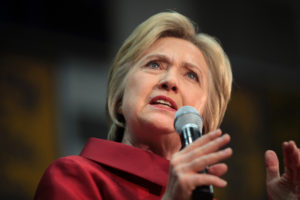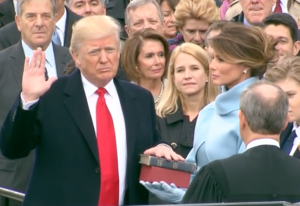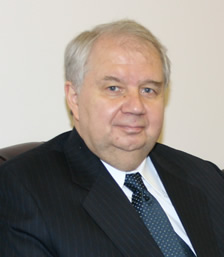The Politics Behind ‘Russia-gate’

The hysteria over “Russia-gate” continues to grow – as President Trump’s enemies circle – but at its core there may be no there there while it risks pushing the world toward nuclear annihilation, writes Robert Parry.
There may be a turn-about-is-fair-play element to Democrats parsing the words of Attorney General Jeff Sessions and other Trump administration officials to hang them on possible “perjury” charges. After all, the Republicans made “lock her up” a popular chant citing Hillary Clinton’s arguably illegal use of a private email server as Secretary of State and her allegedly false claim under oath that her lawyers had hand-checked each of her 30,000 or so emails that were deleted as personal.
But there is a grave danger in playing partisan “gotcha” over U.S. relations with the world’s other major nuclear superpower. If, for instance, President Trump finds himself having to demonstrate how tough he can be on Russia — to save his political skin — he could easily make a miscalculation that could push the two countries into a war that could truly be the war to end all wars – along with ending human civilization. But Democrats, liberals and the mainstream news media seem to hate Trump so much they will take that risk.
Official Washington’s Russia hysteria has reached such proportions that New York Times columnist Thomas L. Friedman has even compared the alleged Russian hacking of Democratic emails to Pearl Harbor and 9/11, two incidents that led the United States into violent warfare. On MSNBC’s “Morning Joe” show, Friedman demanded that the hacking allegations be taken with the utmost seriousness: “That was a 9/11 scale event. They attacked the core of our democracy. That was a Pearl Harbor scale event. … This goes to the very core of our democracy.”
But what really goes to “the very core of our democracy” is the failure to deal with this issue – or pretty much any recent issue – with the sobriety and the seriousness that should accompany a question of war or peace. Just as Friedman and other “star” journalists failed to ask the necessary questions about Iraq’s WMD or to show professional skepticism in the face of U.S. propaganda campaigns around the conflicts in Libya, Syria or Ukraine, they have not demanded any actual evidence from the Obama administration for its lurid claims about Russian “hacking.”
Before this madness goes any further, doesn’t anyone think that the U.S. intelligence community should lay its cards on the table regarding exactly what the evidence is that Russian intelligence purloined Democratic emails and then slipped them to WikiLeaks for publication? President Obama’s intelligence officials apparently went to great lengths to spread these allegations around – even passing the secrets around overseas – but they never told the American people what the evidence is. The two official reports dealing with the issue were laughably short on anything approaching evidence. They amounted to “trust us.”
Further, WikiLeaks representatives have indicated that the two batches of emails – one from the Democratic National Committee and the other from Clinton’s campaign chairman John Podesta – did not come from the Russians but rather from two different American insiders. That could be wrong – it is possible that Russian intelligence laundered the material through some American cutouts or used some other method to conceal Moscow’s hand – but Obama’s intelligence officials apparently don’t know how WikiLeaks obtained the emails. So, the entire “scandal” may rest upon a foundation of sand.
No ‘Fake News’
It’s also important to note that nothing that WikiLeaks published was false. There was no “fake news.” Indeed, a key reason why the emails were newsworthy at all was that they exposed misconduct and deception on the part of the Democrats and the Clinton campaign. The main point that the DNC emails revealed was that the leadership had violated its duty to approach the primary campaign even-handedly when instead they tilted the playing field against Sen. Bernie Sanders. Later, the Podesta emails revealed the contents of Clinton’s speeches to Wall Street bankers, which she was trying to hide from the voters, and the emails exposed some of the pay-to-play tactics of the Clinton Foundation.

Former Secretary of State Hillary Clinton speaking with supporters at a campaign rally in Phoenix, Arizona, March 21, 2016. (Photo by Gage Skidmore)
In other words, even if the Russians did reveal this information to the American people, how does knowing relevant facts regarding a presidential campaign translate into an attack on “the core of our democracy”? Usually, journalists believe that getting the truth out, even if it embarrasses some politician or some political party, is healthy for a democracy. As an American journalist, I prefer getting information from people who have America’s best interests at heart, but I’m not naïve enough to think that people who “leak” don’t often do so for self-interested reasons. What’s most important is that the information is genuine and newsworthy.
Frankly, I found the WikiLeaks material far more appropriate for an American political debate than the scurrilous rumors that the Clinton campaign was circulating about Trump supposedly getting urinated on by Russian prostitutes in a five-star Moscow hotel, claims for which no evidence has been presented.
Also, remember that no one thought that the DNC/Podesta emails were significant in deciding the 2016 election. Clinton herself blamed FBI Director James Comey for briefly reopening the FBI investigation into her private email server near the end of the campaign as the reason her poll numbers cratered. It’s relevant, too, that Clinton ran a horrific campaign, which included breathtaking gaffes like referring to many Trump supporters as “deplorables,” relying way too heavily on negative ads, failing to articulate a compelling vision for the future, and ignoring signs that her leads in Rust Belt states were disappearing. In other words, the current effort to portray the disclosure of Democratic emails as somehow decisive in the campaign is revisionist history.
Yet, here we are with The Washington Post, The New York Times, CNN and almost the entire mainstream media (along with leading liberals and Democrats) panting every time they discover that someone from Trump’s circle met with a Russian. We are supposed to forget that the Russian government for many years was collaborating closely with the U.S. government – and particularly with U.S. national security agencies – on vital issues. Russia assisted in supplying the U.S. military in Afghanistan; President Putin played a crucial role in getting Iran to curtail its nuclear program; and he also arranged for the Syrian government to surrender its stockpiles of chemical weapons. The last two accomplishments were among President Obama’s most important foreign policy successes.
But those last two areas of cooperation – Iran and Syria – contributed to making Putin a target for Washington’s powerful neoconservatives who were lusting for direct U.S. military strikes against those two countries. The neocons, along with the Israeli and Saudi governments, wanted “regime change” in Tehran and Damascus, not diplomatic agreements that left the governments in place.
Neocons inside the U.S. government – including Assistant Secretary of State Victoria Nuland, Sen. John McCain and National Endowment for Democracy president Carl Gershman – then took aim at “regime change” in Ukraine, realizing its sensitivity to Russia. Gershman, whose NED is funded by the U.S. government, called Ukraine “the biggest prize” and a key step toward ousting Putin inside Russia; McCain cheered on Ukraine’s ultranationalists who were firebombing police in Kiev’s Maidan square; and Nuland was conspiring with U.S. Ambassador to Ukraine Geoffrey Pyatt on how to “glue” or “midwife” a change in government.
This neocon strategy worked by overthrowing Ukraine’s elected President Viktor Yanukovych and causing Putin to intervene on behalf of threatened ethnic Russians in Crimea and eastern Ukraine. That, in turn, was transformed by the Western media into a “Russian invasion.”
Partisan Interests
Instead of standing up to this neocon troublemaking, Obama fell in line. Later, the Democrats saw political advantage in becoming the super-hawks standing up to Russia, essentially maneuvering to the right of the Republicans, especially when Donald Trump unexpectedly won the nomination, in part, by calling for better relations with Russia.
As the 2016 presidential campaign sank into infamy as one of the ugliest in U.S. history, Clinton hammered Trump over Russia, calling him a Putin “puppet.” But the Russia-bashing didn’t seem to help Clinton very much. Although it was calculated to pull in some “moderate” Republicans, it also alienated many peace-oriented Democrats.
Still, despite the shaky foundation and the haphazard construction, Official Washington is now adding more and more floors to this Russia “scandal.” Obama holdovers slapped together a shoddy pretext for going after Trump’s National Security Adviser Michael Flynn – citing the never-prosecuted Logan Act of 1799 and then trapping Flynn because he didn’t have total recall of a phone conversation with Russian Ambassador Sergey Kislyak on Dec. 29 while Flynn was vacationing in the Dominican Republic.
Similarly, the mainstream media and Democrats are framing in a “perjury” case against Attorney General Sessions because of a sloppily worded response during his confirmation hearing about contacts with Russians. He had met twice with Kislyak (as many others in Washington have done). The heavy-breathing suspicion is that perhaps Sessions and Kislyak were plotting how the Kremlin could help the Trump campaign, but there is zero evidence to support that conspiracy theory.
What’s actually happening here should be obvious. The Obama administration, the Democrats and the mainstream media were horrified at Trump’s election. They understandably were offended by Trump’s personal behavior and his obvious unfitness for the presidency. Many Clinton supporters, especially women, were bitterly disappointed at the failure of the first female major-party presidential nominee who lost to a lout who boasted about how he could exploit his fame and power by grabbing the genitals of vulnerable women whom he assumed couldn’t do anything to stop him.
There was also alarm about Trump’s policies on the environment, immigration, education and the courts. Among the neocons and their liberal-interventionist sidekicks, there was concern, too, that Trump would not continue their “regime change” strategies in the Middle East and their hostility toward Russia.
So, these anti-Trump forces grabbed at the most potent weapon available, the suspicions that Trump had somehow colluded with Russia. It didn’t matter that the evidence was weak to non-existent. It would be enough to spread the allegations around under the cloak of U.S. intelligence “assessments.”
Nobody important would demand to review the evidence and, surely, with the availability of National Security Agency intercepts, people’s memories could be tested against the transcripts of conversations and be found wanting. Verbal missteps could become perjury traps. There could be a witch hunt against anyone who talked to a Russian. Any pushing back from the Trump people could be construed as a “cover-up.”
Having worked in Washington for nearly four decades, I have seen political investigations before, both in steering away from real crimes of state (such as Nicaraguan Contra cocaine trafficking and Republican collaboration with foreign governments to undercut Democrats in 1968 and 1980) and in fabricating scandals that weren’t there (such as the fictional offenses of Whitewater, Travelgate, Filegate, Chinagate, etc. under Bill Clinton who was finally cornered for the heinous crime of lying about sex). So far at least, “Russia-gate” fits much more with the latter group than the former.
What I also have learned over these years is that in Official Washington, power – much more than truth – determines which scandals are taken seriously and which ones are not. “Russia-gate” is revealing that the established power centers of Washington arrayed against Trump – the major news media, the neoconservatives and the Democratic Party – have more power than the disorganized Trump administration.
Investigative reporter Robert Parry broke many of the Iran-Contra stories for The Associated Press and Newsweek in the 1980s. You can buy his latest book, America’s Stolen Narrative, either in print here or as an e-book (from Amazon and barnesandnoble.com).



